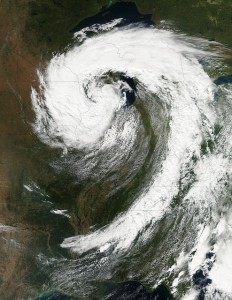Sometimes comma use is arbitrary, but usually we have rules to guide us. So to brush up on the rules, let’s look at a few of the most common misunderstandings about when to hit the comma key or resist the impulse.
Quiz time
1. How many commas do you need in this sentence?
The first conference was held on June 17 2007 in Atlanta.
One between “June 17” and “2007,” right? Yes, but don’t stop there. The frequent error is not placing a comma after the year as well. So we need two commas:
The first conference was held on June 17, 2007, in Atlanta. (And if we were saying “Sunday, June 17, 2007,” we would, of course, need three commas.)
2. How about this sentence?
The first conference was held in June 2007 in Atlanta.
We don’t need any. Keep it clean when stating only the month and year.
3. Now tackle this one:
We have chosen Madison Wisconsin as the site of our next conference.
Did I trap you again? We need two commas:
We have chosen Madison, Wisconsin, as the site of our next conference. Remember the comma after the state.
An explanation I’ve seen for the comma after “Wisconsin” and the one after “2007” is that these constructions are treated as though we’re writing something non-essential. (By the way, I mean June 17 in 2007. By the way, I mean the Madison in Wisconsin, not the one in Ohio.)
4. Now we’ll switch gears. How many commas do you need in this sentence?
The panel examined all the responses from community members living in the suburbs and concluded that their comments were strikingly similar to those of city residents.
You don’t need any. Yes, the sentence is somewhat lengthy, but let’s break it down. The subject of the sentence is “panel.” Everything after that is the predicate, explaining what the panel did, and in this instance no part of the predicate needs punctuation. A comma after suburbs would interrupt the flow and be incorrect.
Remember, however, that whenever we’re uncomfortable we can reword, and maybe you don’t like composing a 26-word sentence without any internal punctuation. In that case, you might prefer this:
After examining all the responses from community members living in the suburbs, the panel concluded that their comments were strikingly similar to those of city residents.
5. And how many commas belong in this sentence?
I asked Joe to join us and Emma invited Janie.
Yes, the sentence is short, but we have a subject and predicate and then another subject and predicate, so we need a comma to separate them:
I asked Joe to join us, and Emma invited Janie.
Note that without the comma the reader momentarily thinks I asked Joe to join us and Emma. Commas do help!
We’ll wrap up this short review of correct comma use next week. See you then.
In addition to presenting workshops on writing in the workplace, Norm Friedman is a writer, editor, and writing coach. His 100+ Instant Writing Tips is a brief “non-textbook” to help individuals overcome common writing errors and write with more finesse and impact. Learn more at http://www.normfriedman.com/index.shtml.

